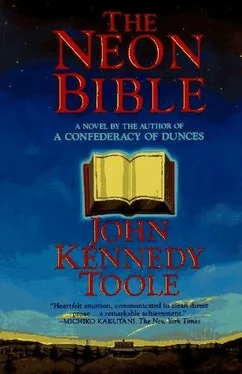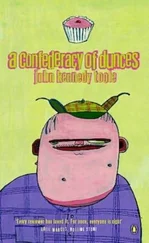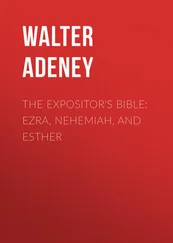That night was just like the day had been, hot and still, even in the hills. I could hear radios playing loud from down in town. Some had the baseball game, but most were listening to the news about the end of the war. Our radio was playing upstairs where Mother and Aunt Mae were listening to it, but it was some waltz music from someplace in New York. Down on the streets people were still going to one another's house or meeting on the street and laughing. The preacher's Bible was on like always. Once in the war we had an air raid practice in the valley and he got into trouble with the sheriff because he wouldn't turn it off. The preacher was probably glad the war was over too. While it was going on, not many people attended, not even the ones who stayed with him after the Bobbie Lee Taylor thing.
The next day everybody's clothesline was full of bedclothes and shirts for the husbands and brothers and sons who were coming home. By the time Christmas came, plenty were home. They all had babies from the girls they married on their furloughs. Everybody had up a Christmas tree but us and those other houses where the lights weren't on the night the war was over. They still had their service flag in the window where they didn't want to or forgot to take it down. We still had ours on the front door too. None of us wanted to touch it.
By the next spring the seedling pines in Poppa's cleared land were getting tall and beginning to look like real pines. Down in town all the babies were beginning to walk, and there were new ones coming in. When I walked home from Mr. Farney's class in the evening all the girls were out on the front porches where they lived with their parents or their husband's parents, and I could see they were all going to have other babies soon too. Almost all the soldiers were in then. Some of them went off to the college at the capital with their wives and babies, but plenty stayed right in town because they hadn't even been to the high school at the county seat.
Mr. Watkins wrote a letter to the paper that he had never seen so many pregnant women on the streets and that he was disgusted with the sight of them. Then the paper got a lot of letters from the pregnant women asking him what they were supposed to do about it. One woman wrote she was curious to know why Mr. Watkins and his wife never had any children. The next Sunday night Mrs. Watkins got on the preacher's radio program and said she was glad she never had any children to have to bring up in this sinful world alongside of the kind of children that woman would have.
Some of the men came back to the valley with women they married in Europe. The town people wouldn't have anything to do with them, so they all got together and moved to the capital. On the radio the preacher said it was good riddance and that he didn't want to see the good American blood of the valley lose its purity. That won a lot of the town people back to his side, so pretty soon the church rolls were filled again and kept on growing. Some got together in the church hall and organized a society to keep the valley blood pure and Christian and free from the heathen blood that might ruin it and bring damnation to the valley. Not everyone in town joined it, but it had a pretty big membership. It met once a week for a while until all the soldiers who weren't killed got home, and then they didn't need it anymore.
Some of the killed men started coming home too. They delivered them at the station just like mail. About once a month one would come to the valley, but just his people went to get the body. No one thought too much about the dead ones. The living ones were all over with their new babies and families. I don't guess anyone wanted to think about the ones who came to the station in the long wooden boxes. Anyway, no one did, except maybe the newspaper editor, who always had something in the paper about it when one came in. The women who hadn't cried since they heard about their son or brother or husband getting killed cried all over again when the bodies came in at the station. Then they were put in somebody's truck and taken to the graveyard up in the hills. Sometimes I'd see one of those trucks going down Main Street with a woman sitting up front crying and a man driving with the long box bumping in the back. The little children would run away when they saw one coming because it frightened them. After they got out of town, they turned up the north hill to the graveyard. If the woman was on the preacher's rolls, they'd stop at the church to get him to go with them. Then they came down from the hill about an hour later and left the preacher off, and the woman was still crying.
Poppa never did come home. They buried him in Italy somewhere. Mother got a picture of the place. It was nothing but rows and rows of white crosses, and Mother wondered which one was Poppa's. Aunt Mae had to hide the picture from her because she just sat down and looked at it and said, "Maybe this one," and pointed, or "It could be that one, Mae," or she'd ask Aunt Mae which one she thought it was. When she couldn't find the picture, she got mad, so Aunt Mae had to give it back to her. Pretty soon it was all torn and yellow, and the crosses were smeared and greasy from Mother rubbing her finger across it. When Aunt Mae went out to sing at night, I'd sit with Mother and watch her look at the picture. She never even knew I was there, but just sat and felt the picture, and then she'd turn it over and look on the back and laugh when she saw there wasn't anything there. I knew I shouldn't be frightened of my own mother, but I was, and I'd wait for Aunt Mae to come home and hope she'd hurry up.
The war plant closed, so Aunt Mae didn't have her job anymore. The only money she made was at night when the band went out. She tried to get a job down in town, but all the men who returned had all the jobs. The only thing she could do was be a maid for the rich people who lived on the street to the north, and Aunt Mae didn't want a job like that. All the colored girls would call her white trash if she took a job like that, so she stayed around the house while I was away at school and helped Mother, who couldn't seem to do anything anymore. Mother would begin to clean and then go get the picture from her room and sit and look at it, or else she burned the food when she tried to cook and didn't even smell it to take it off the stove. One day Aunt Mae told her to go sit on the porch while she worked in the house. When I got home from school that afternoon, Aunt Mae ran down the path to get me with a wild look in her eyes. I was scared when I saw her coming and didn't know what was wrong. She grabbed me by the shoulders and said she told Mother to go sit on the porch and now she couldn't find her. That strange feeling ran up my legs and stopped, the one I always get when I'm scared. I told Aunt Mae I didn't see her coming up the path. We went back to the house and looked all over, but we couldn't find her. It was getting dark. Mother was nowhere in the house, so I went up into the hills to walk around and try to think where she could be. I walked through the old place that Poppa had cleared. The pines there were a fine size now. The twilight was always pretty in the pines. I stopped and looked around and thought I heard something by the base of one of them. It was Mother digging at the ground. She looked up and saw me and turned back to the pine and smiled.
"Oh, David, aren't your father's cabbages growing big! I never thought his vegetables would get anywhere in all this clay, but just look. Big, big cabbages your poppa grew."
Aunt Mae got up in the mornings now and made my lunch for school. She learned more about cooking by now and didn't do so bad. When I got off she dressed Mother and let her go outside.
In school I was almost out of Mr. Farney's, which meant I was almost out of grade school. Mr. Farney was different from the other people in the valley. I heard he was from Atlanta, but that wasn't why he was different. It was the way he acted that made him strange. He didn't walk like the other men did. He walked more like a woman who swayed her hips. You could always tell Mr. Farney by his walk, no matter what clothes he was wearing and even if his back was turned to you. He had small feet that sort of pointed in when he walked. He had thin black hair that just lay soft on his head like a baby's. The main thing about Mr. Farney that was different when you saw him was his face. I knew he was almost thirty, but his skin was smooth, and you could see thin blue veins in his forehead and his nose and on his hands. His eyes were the clearest blue you ever saw and were big and wide. Everything else about him was thin, his nose, his mouth, and his body. No matter whether it was warm or cold his ears were always red, and you could almost see through them in some places.
Читать дальше












